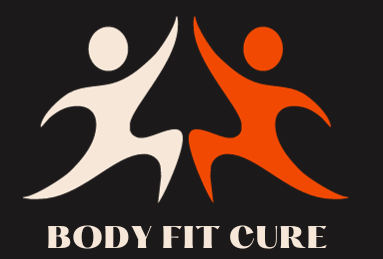For decades, milk has been a staple part of a healthy diet. In fact, it is so essential that many dietary guidelines recommend it as a part of daily nutrition. With that said, milk intake is especially important for women, who require specific nutrients to maintain optimal health.
Women should drink a glass of milk every day to receive the nutrients necessary for healthy bones, strong immune systems and overall health. Milk is a rich source of calcium, vitamin D, and other essential nutrients that are crucial for women’s health.
Key Takeaways
- Regular milk intake promotes bone strength and reduces the risk of osteoporosis in women.
- Milk is an excellent source of nutrients that contribute to overall wellness, including vitamins and minerals that boost energy and support a healthy immune system.
- Women who are lactose intolerant can choose from a variety of lactose-free milk options, or they can opt for alternative milk substitutes that provide similar benefits.
- It is important for women to incorporate daily milk consumption into a balanced diet for optimal health benefits.
- Drinking a glass of milk every day is an easy and convenient way for women to prioritize their health and well-being.
Promoting Strong and Healthy Bones
Women’s health is a top priority, and maintaining healthy bones is key to overall wellness. That’s where milk comes in. Calcium and vitamin D, both found in milk, are essential nutrients for bone strength, promoting bone growth and preventing conditions such as osteoporosis.
Calcium intake is especially important for women, as they are at greater risk of developing weak bones as they age. Doctors recommend that women aged 19-50 consume 1000mg of calcium every day, while women over 50 should aim for 1200mg. Regular milk intake can help achieve these recommended levels and maintain optimal bone health.
One 8-ounce glass of milk contains around 300mg of calcium, which is already 30% of the recommended daily intake. Besides, milk is also a rich source of vitamin D, which is critical for the absorption of calcium. Vitamin D helps regulate the body’s calcium levels, ensuring the right amount is available to build strong bones.
“Milk is an excellent source of calcium and vitamin D, which are essential for maintaining strong and healthy bones in women. Regular milk intake helps prevent bone loss and lower the risk of developing bone diseases such as osteoporosis.”
Fulfilling Your Calcium Intake with Milk
Aside from being a delicious and versatile beverage, milk is also a practical way to achieve your daily calcium intake. However, not all milk products are created equal. Some may have added sugars or artificial flavors that could detract from the nutritional benefits. It’s best to stick to plain, unsweetened milk for maximum calcium and vitamin D intake.
If you have lactose intolerance or prefer not to consume dairy, there are alternatives available. Lactose-free milk and plant-based milk substitutes fortified with calcium and vitamin D are great options to consider. These provide similar benefits to regular milk without the lactose content, making them easier to digest for people with lactose intolerance.
Calcium and Vitamin D Content in Different Milk Types
| Milk Type | Calcium Content (mg) | Vitamin D Content (IU) |
|---|---|---|
| Whole Milk (8 oz) | 276 | 124 |
| Skim Milk (8 oz) | 299 | 124 |
| Almond Milk (8 oz) | 516 | 110 |
| Soy Milk (8 oz) | 299 | 119 |
It’s important to note that milk isn’t the only food source of calcium and vitamin D. Other calcium-rich foods include yogurt, cheese, and leafy green vegetables like kale, collards, and spinach. Foods that are good sources of vitamin D include fatty fish like salmon, tuna, and mackerel, and egg yolks. A balanced and varied diet that includes these foods can help ensure optimal calcium and vitamin D intake for strong and healthy bones.
Boosting Overall Wellness
Drinking milk every day can have a significant impact on a woman’s overall wellness. Milk contains a wide variety of essential nutrients, vitamins, and minerals that contribute to good health. For example, milk is an excellent source of calcium, which is crucial for maintaining strong and healthy bones. It also contains vitamin D, which helps the body absorb calcium more efficiently.
| Nutrient | Milk (1 cup) | % of Daily Value |
|---|---|---|
| Calcium | 305mg | 23% |
| Vitamin D | 2.9mcg | 15% |
| Vitamin B12 | 1.1mcg | 46% |
| Vitamin A | 149IU | 5% |
| Potassium | 366mg | 8% |
In addition, milk is an excellent source of other nutrients like vitamins A and B12, potassium, and phosphorus. These nutrients support immune function, energy levels, and the proper functioning of various bodily systems. Regular milk consumption has also been linked to a lower risk of type 2 diabetes, cardiovascular disease, and certain cancers.
Overall, incorporating a glass of milk into your daily diet can have a significant positive impact on your health and well-being, providing essential nutrients that support bone density, immune function, and overall wellness.
Addressing Common Concerns about Milk
While milk is an excellent source of many essential nutrients, some women may have concerns about consuming it. One common concern is lactose intolerance, which affects approximately 65 percent of the human population.
If you are lactose intolerant, there are lactose-free milk options available, such as lactose-free cow’s milk or plant-based milks like almond, soy, or oat milk. These alternatives offer similar benefits to regular milk and can be a great alternative. However, some alternative milks may have added sugars or other ingredients, so it’s important to check the labels and choose options with minimal additives.
For those who prefer to avoid dairy altogether, there are many non-dairy milk substitutes available, such as coconut, rice, or hemp milk. It is essential to note, however, that these milk substitutes may not offer the same nutritional benefits as dairy milk. It’s advisable to consult a physician or registered dietitian to ensure you are meeting your nutrient needs if you opt for non-dairy alternatives
“Lactose-free or non-dairy milk substitutes can still offer the same benefits as regular milk, but it’s important to consider their nutritional content and select options that are low in additives and sugars.”
A balanced diet can include dairy, non-dairy milk substitutes, or a combination of both. It all depends on your taste preferences, dietary needs, and overall health goals.
Comparison of Nutritional Content: Dairy Milk and Almond Milk
| Nutrient | Dairy Milk (1 cup) | Unsweetened Almond Milk (1 cup) |
|---|---|---|
| Protein | 8g | 1g |
| Calcium | 305mg | 516mg |
| Vitamin D | 124IU | 110IU |
| Calories | 149 | 30 |
| Sugar | 12g | 0g |
As you can see, dairy milk and almond milk have distinct nutritional differences. While dairy milk has more protein and vitamin D, almond milk has more calcium, fewer calories, and no sugar. It’s essential to select a milk option that aligns with your nutrient needs and overall wellness goals.

Incorporating Milk Into a Balanced Diet
Drinking milk is a simple yet effective way for women to ensure they are getting the nutrients they need for their overall health and wellness. According to dietary guidelines, adults should consume three servings of dairy per day, including milk.
It is recommended for women to aim for daily milk intake of at least one to two servings, depending on their age and daily calorie intake. A single serving of milk is equivalent to one cup or eight ounces.
When it comes to incorporating milk into a balanced diet, it is important to consume it in conjunction with other nutrient-rich foods. Consider pairing milk with whole-grain cereal or oatmeal for a balanced breakfast, or a serving of fruit as a snack. Milk can also be incorporated into smoothies or used as a base for soups and sauces.
For those who are lactose intolerant or prefer to avoid dairy, there are also lactose-free milk options or alternative milk substitutes that can still offer similar health benefits. However, it is important to ensure that non-dairy milk substitutes are fortified with calcium and vitamin D to make up for the nutrients that milk provides.
Benefits of Incorporating Milk into Your Diet
| Milk | Calcium-fortified Soy Milk | |
|---|---|---|
| Calcium (mg/serving) | 300 | 300 |
| Vitamin D (IU/serving) | 100 | 100 |
| Protein (g/serving) | 8 | 6 |
| Fat (g/serving) | 2.5 | 4 |
As shown in the table above, incorporating either milk or calcium-fortified soy milk into your diet can provide similar amounts of calcium and vitamin D. Milk, however, has a higher protein content and a lower fat content compared to soy milk.
By incorporating milk into a balanced diet, women can improve their bone health, support overall wellness by obtaining essential nutrients, and promote a healthy body weight. Remember to consult a healthcare professional to tailor your daily milk intake to your specific needs and goals.
Conclusion
In conclusion, daily milk intake is a significant aspect of women’s health and wellness. It promotes strong and healthy bones, boosts overall wellness, and offers various essential nutrients critical to their health.
Addressing common concerns about milk consumption, such as lactose intolerance or dietary preferences, doesn’t have to be a hindrance to a healthy lifestyle. Women can opt for lactose-free options or alternative milk substitutes that can still offer similar health benefits.
To incorporate milk into a balanced diet, women can follow the recommended daily milk intake based on dietary guidelines. Consuming milk with other nutrient-rich foods can further optimize the health benefits of milk.
Therefore, women should prioritize daily milk intake as part of their healthy lifestyle choices. Drinking a glass of milk every day is an achievable goal that can significantly contribute to their long-term health and well-being.
FAQ
Why is daily milk intake important for women?
Daily milk intake is important for women because it provides essential nutrients that promote their overall health and well-being. Milk is rich in calcium and vitamin D, which are crucial for maintaining strong and healthy bones. It also contains various vitamins and minerals that contribute to enhancing energy levels, immune function, and preventing certain health issues.
How does milk promote strong and healthy bones for women?
Milk promotes strong and healthy bones for women because it is a rich source of calcium and vitamin D. Calcium is essential for bone strength, while vitamin D helps the body absorb calcium effectively. Regular milk intake can help prevent bone conditions like osteoporosis and ensure optimal bone health.
What are the benefits of daily milk consumption for women’s overall wellness?
Daily milk consumption offers several benefits for women’s overall wellness. Milk provides a wide range of nutrients, vitamins, and minerals that contribute to enhancing energy levels, immune function, and overall health. It supports proper bodily functions and can help prevent certain health issues.
What if I am lactose intolerant or prefer non-dairy alternatives?
If you are lactose intolerant or prefer non-dairy alternatives, there are options available that can still offer similar health benefits. Lactose-free milk or lactose intolerance-friendly products are suitable choices for individuals with lactose intolerance. Additionally, various plant-based milk substitutes, such as almond milk or soy milk, are rich in nutrients and can serve as alternatives for those who prefer non-dairy options.
How can I incorporate milk into a balanced diet?
Incorporating milk into a balanced diet can be done by following dietary guidelines and recommended daily milk intake for women. It is recommended to include a serving of milk in conjunction with other nutrient-rich foods. This can be achieved through consuming milk as a beverage, adding it to cereal or coffee, or incorporating it into recipes for smoothies, soups, and desserts.



